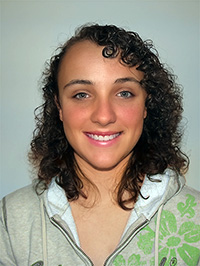Which study skills strategies can improve students’ academic performance?
Page 1: Introduction to Study Skills
Did You Know?
Some textbooks now incorporate strategy instruction by including items such as questions at the beginning of their chapters to tap into prior knowledge and by asking students to create graphic organizers to arrange the presented material.As early as in the fourth grade, teachers begin to present many of their lessons in the form of lectures, something that is different from how their students have previously received classroom instruction. This type of content delivery requires students to quickly process information, to identify important details, to take good notes, and later to retrieve this information for tests. As students move into middle and high school, the demands placed upon them continue to increase. More and more, they are expected to independently read and glean information from content-area textbooks, complete multi-step assignments, and select and use appropriate study strategies. It’s largely due to these increasing expectations and more challenging content, however, that secondary students with learning differences—particularly those with learning disabilities (LD) and attention deficit hyperactivity disorder (ADHD)—are more at risk of academic failure than are their peers without disabilities. One reason that these students struggle is because they have difficulties with executive functions, the mental processes that control and coordinate activities related to learning, such as:
- Processing information
- Retaining and recalling information
- Organizing materials and time
- Using effective learning and study strategies
As Ms. Flemming pointed out in her classroom reflection, her students Erin and Kyra are struggling in a few of these areas this year. Erin seems to have great difficulty organizing her materials, and Kyra has trouble remembering information.
Student Profiles
Although the Challenge video to this module was simulated, the three students you met were portraying themselves. Their profiles reflect their actual abilities, just as their interview responses throughout this module capture their own experiences. Additionally, all work samples and questionnaire responses are genuine.

Hannah is a high school sophomore who excels academically. She puts forth a lot of effort and spends many hours completing assignments. As do many students with strong academic performance, Hannah has well-developed executive function processes.
Successful Student
- Strong processing skills
- Good at retaining and recalling information
- Good organizational and time management skills
- Employs effective study skills strategies

Erin is a college freshman. Although she sailed through elementary and middle school, she began to struggle academically when she encountered the academic demands of high school. It was at this time that Erin was diagnosed with attention deficit hyperactivity disorder (ADHD). She has difficulty with certain executive function processes, in particular organizing materials and retaining and recalling information.
Student with ADHD
- Adequately processes information
- Some difficulty retaining and recalling information
- Difficulty organizing materials and managing time
- Difficulty selecting, monitoring, and using strategies

Kyra is a high-school sophomore who has struggled academically since she was in elementary school. She has a learning disability and attention deficit hyperactivity disorder (ADHD). Like many students with LD and ADHD, she has difficulty with certain executive function processes. She especially struggles with processing information; retaining and recalling information; and selecting, monitoring, and using strategies. Although she puts in a lot of hours working on homework, studying for tests, and attending after-school tutoring sessions, she struggles to make passing grades in several classes.
Student with LD and ADHD
- Difficulty processing information
- Difficulty retaining and recalling information
- Some difficulty organizing materials
- Difficulty selecting, monitoring, and using strategies
If they are to learn how to gain and use information effectively, students with executive function challenges must be explicitly taught how to strategically approach academic tasks. That is, they need to be taught effective study strategies, often referred to as study skills. As can be seen in the table below, individual strategies can be used to address problems students might be experiencing with four critical activities related to learning.
| Activities Related to Learning | Study Skills Strategies |
|---|---|
| Processing information |
|
| Retaining and recalling information |
|
| Organizing materials and managing time |
|
| Selecting, monitoring, and using strategies |
|
To make sure that students learn to use study skills strategies in an automatic or fluent manner, teachers need to use a research-validated strategy instruction model. When teachers do not make use of a validated approach, students often do not learn how, when, or where to use the strategies. Before teaching any of these strategies, it is recommended that you complete the following IRIS Module: